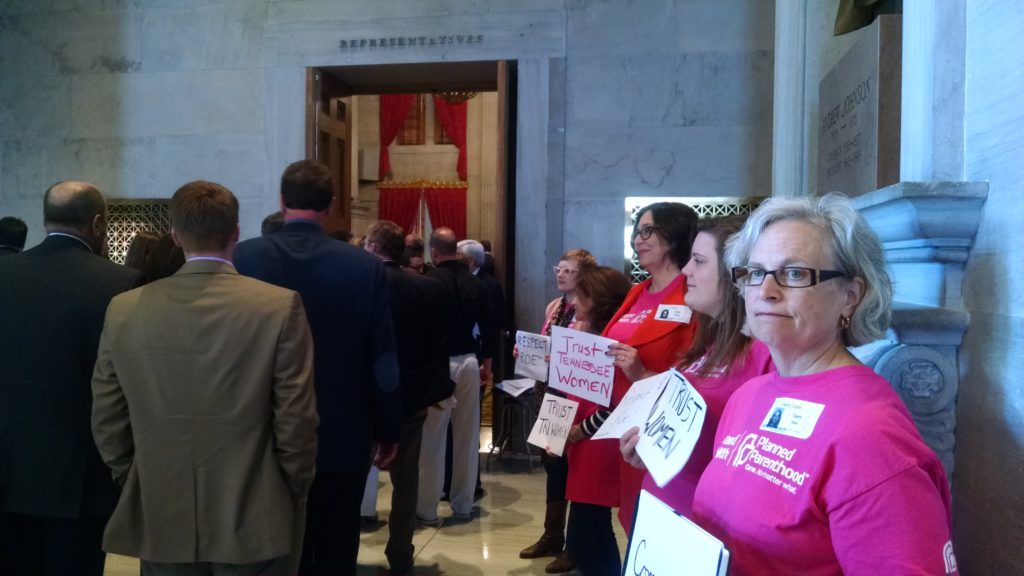
Tennessee is on the verge of placing its first new restrictions on women seeking abortion in nearly 20 years.
Lawmakers in the state House of Representatives voted Tuesday to impose a 48-hour waiting period and to require women to hear a mandatory warning before an abortion.
The House also voted to make all facilities that provide more than 50 abortions a year submit to stringent inspection standards.
Rep. Matthew Hill (R-Jonesborough) said Tennesseans
have shown they approve of the regulations by voting last fall for a measure known as Amendment 1, which stripped abortion rights from the state constitution.
“This legislation fulfills a promise that we made to the voters of Tennessee that, if they passed Amendment 1, that this is exactly what we would do,” he said.

The regulations are contained in a pair of measures,
House Bill 977 and
House Bill 1368
,
that have already cleared the state Senate. Gov
. Bill Haslam
has indicated he supports the rules.
HB 977 would re-impose a two-day waiting period first passed by the legislature in 1978. The bill would also require doctors to provide “informed consent” to women seeking abortions, through a carefully worded warning that lays out the potential risks of the procedures.
Both provisions were
struck down in a 2000 ruling by the Tennessee Supreme Court. In that decision, justices determined the Tennessee constitution’s privacy provisions grant even greater protections for abortion than the U.S. constitution.
Tennessee voters reversed that decision last fall by adding language to the state constitution that denies abortion rights protections.
HB 1368 would add to those regulations a new requirement that abortion clinics and doctors who provide abortions in their offices register as ambulatory surgical centers. Abortion providers say three of the state’s seven clinics aren’t currently regulated as surgical centers; two of those clinics could be forced to close under the requirement.
Supporters of the regulations say they’re needed to protect women’s health. The bills’ backers avoided making statements critical of abortion itself — remarks that could be used against the measures later if they’re challenged in court.
Opposition has come from Democrats, who say the regulations will make abortions harder to get. The rules could also make abortions less safe, opponents say, by requiring women to wait unnecessarily before going through procedures.
They tried to soften the bill’s impact. Democrats proposed granting exceptions to the waiting period for mental health reasons and to women who are the victims of rape or incest. They also suggested letting doctors perform consultations by telephone or through videoconferencing or allowing medical professionals other than doctors provide initial counseling.
“There has been absolutely no proof — no medical proof — provided … justifying the need for a physician to be present in this first office visit,” said Rep. John Ray Clemmons (D-Nashville). “If we’re trying to pass a health care bill, rather than some other type of bill, that is seeking to protect a women’s health allegedly, you would think there would be medical proof justifying the need for this additional hurdle that we’re placing in the path of women seeking to exercise their constitutional right.”


